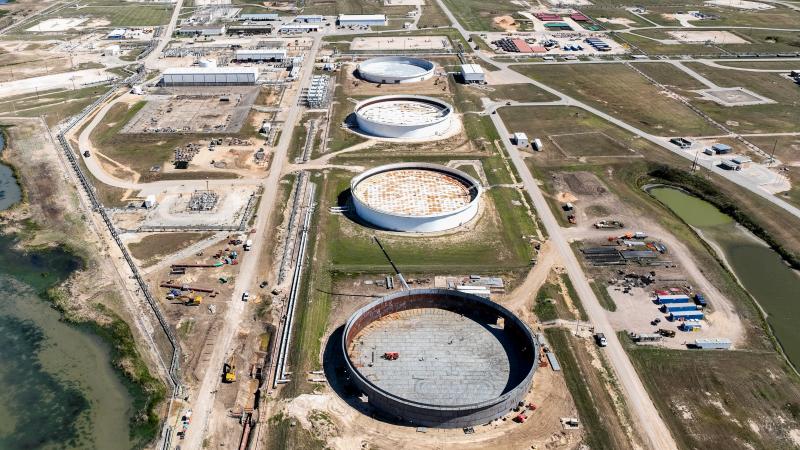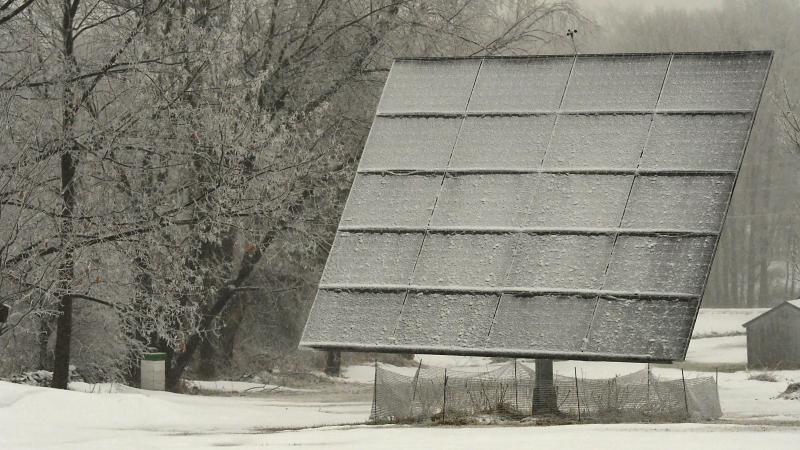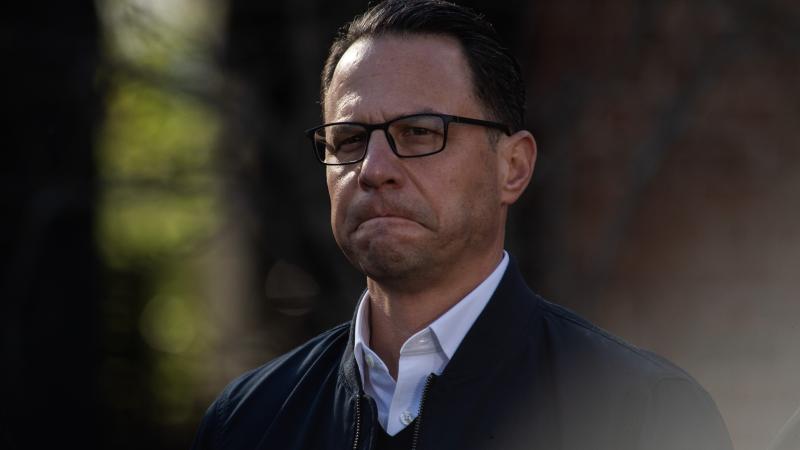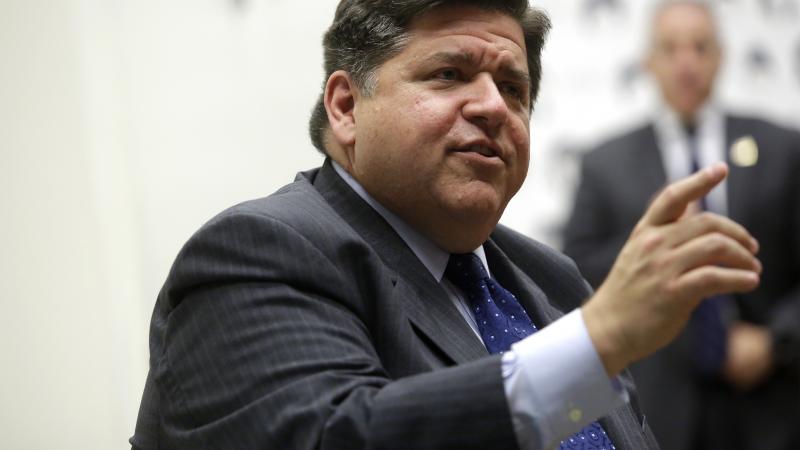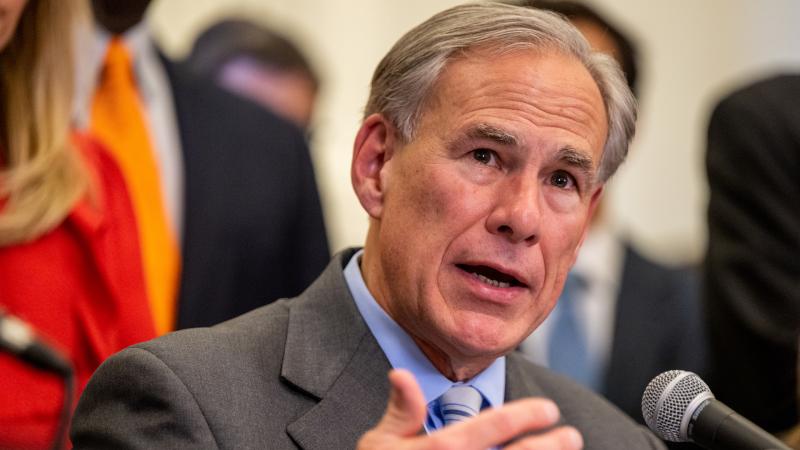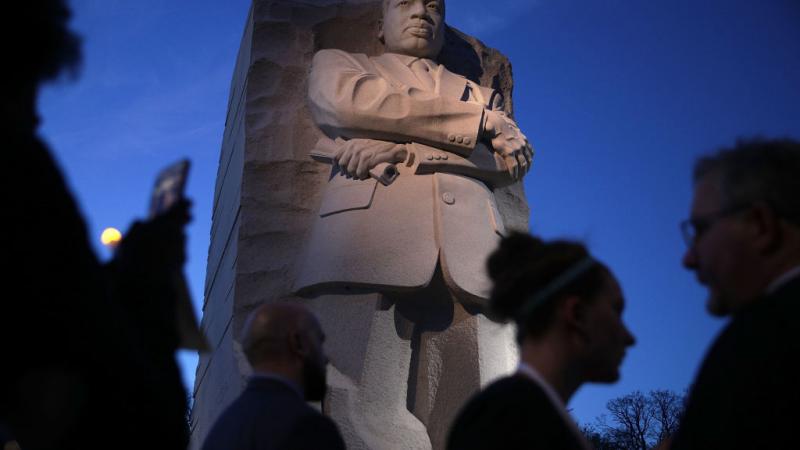Fight between rural Louisiana and carbon capture 'not over'
Opponents to unfettered development of carbon capture secured a couple of wins this time around, with the House Natural Resources Committee passing four bills.
(The Center Square) -
(The Center Square) — The fight between the rural parishes and the industries supporting carbon capture and sequestration is not over.
On Monday, Allen parish approved an ordinance establishing regulations for carbon storage wells.
"One of the reasons they (CO2 companies) picked Allen Parish is because we have no ordinances or zoning and we are going to keep getting taken advantage of, but you have to be careful because you don't regulate your locals," Roland Hollins, an Allen parish Police Jury member said, as reported by the American Press. "But I think it's time that we really have to look at some of this stuff."
While Allen Parish officials were busy imposing regulations on carbon capture, the Legislature was busy debating the same thing on Wednesday.
Opponents to unfettered development of carbon capture secured a couple of wins this time around, with the House Natural Resources Committee passing four bills.
Notably, one functions to compensate landowners more equally when industry uses their land, another eliminates the authority to use eminent domain for the sake of carbon sequestration.
After the House Natural Resources committee rejected seven bills limiting the development of carbon capture and sequestration, one of the last to testify was Mike Nichols, who assured the House Natural Resources Committee that "this isn't over."
Nichols is a constituent of Vernon parish and is part of a group of rural Louisianans and officials concerned with carbon capture and sequestration.
Several coalitions have sprung up opposing carbon capture and sequestration projects in Louisiana, and one is being led and funded by a group of rural parish police juries, public records show.
Known as the Louisiana CO2 Alliance, the group is chaired by elected officials from Allen, Vernon, Jefferson Davis and Beauregard parishes — all of whom have committed public dollars to finance the group's activities.
The alliance, made up primarily of police jurors and at least one justice of the peace, requires a membership fee in the thousands of dollars.
According to meeting minutes from various parishes, each local government approved expenditures to join the group and support its lobbying efforts.
Jefferson Davis Parish approved an initial payment of $1,450 to join the CO2 Alliance. Allen Parish went further, agreeing to pay lobbyist Savant Strategies an initial $1,450, followed by quarterly payments of $2,475. Savant testified in support of the bills limiting carbon capture and sequestration last week.
Allen Parish also allocated an additional $6,000 for an environmental risk assessment conducted by the consulting firm Gulf Engineers & Consultants, which prepared a report on the impacts, good and bad, of carbon capture and sequestration.
Beauregard Parish committed up to $5,000 to support the Alliance. Vernon Parish's records on the matter were not available at the time of publication.
The group has been holding the technology's feet to the fire in public hearings at the Legislature and at their own police jury hearings.
Hollins is also the President of the CO2 Alliance and voiced his opposition before the House Natural Resources Committee, which met for nearly 13 hours as they debated several bills. He was joined by many constituents from his parish and others, who all supported several bills which would have significantly limited carbon capture in the state.
Hollins and many rural Louisianans are particularly worried about the use of eminent domain for carbon capture pipelines, calling it "a pistol in their pocket."
"It's bad enough that communities don't have a say in this stuff," Hollins said in an interview. "And landowners could be sued if they say no."
Currently, CO2 storage is considered a public good, which precludes its authority to use eminent domain. One bill would have revoked that status, but was rejected by the committee.
Allen is the potential site of a carbon capture well for Denbury Inc., which was acquired by ExxonMobil in 2023. Exxon's current lobbyists have been paid at least $374,000, according to records from the Louisiana Ethics Administration.
Denbury was hit with a fine of $2.4M for obstructing federal inspectors, as reported by Floodlight.
The inspection was "related to the replacement of a segment of Denbury's 24-inch Delhi pipeline segment that ruptured on February 22, 2020, and resulted in the evacuation of a total of 200 residents and 45 residents being hospitalized in the town of Satartia, Mississippi."
Exxon defends the economic potential and safety of carbon capture vigorously and is likely to challenge Allen Parish Police Jury's ordinance.
In Louisiana, ExxonMobil is developing storage capacity in places like Allen Parish. This involves applying for a Class V permit to test the site's suitability. If tests confirm the geology is appropriate, the company would then apply for a Class VI permit for permanent CO₂ storage.
Much of Exxon's carbon capture and sequestration pipeline system is already built, which could ease the concerns of people like Hollins, who worry that industry will force landowners to give up their land for carbon capture storage and transportation.
On the economic benefits, a study conducted in partnership with McNeese State University assessed the local impact of carbon capture and sequestration projects. The study found that carbon capture and sequestration can generate substantial economic benefits — job creation, increased tax revenue, landowner payments (through leases, bonuses, and storage fees), and community investment. ExxonMobil expects its projects to deliver even greater returns.
The River Region Chamber of Commerce has endorsed carbon capture and sequestration as a "game changing opportunity" for Louisiana, calling it vital for attracting billions in industrial investment, creating jobs, and keeping the state competitive in global energy markets.
Citing economist Loren Scott's forecast, the chamber highlighted that over $150 billion in planned projects depend on carbon capture and sequestration and renewable energy access.
It also framed carbon capture and sequestration as a safe, decades-old technology that can reduce emissions and modernize infrastructure without strict mandates — while offering new employment opportunities for Louisiana's shrinking oil and gas workforce.
The carbon capture and sequestration effort also positions Louisiana as a national leader in carbon storage, strengthening its industrial economy and enhancing long-term resilience, according to Exxon. There's growing demand, especially internationally, for low-carbon products — comparable to the way some consumers prefer organic food.
